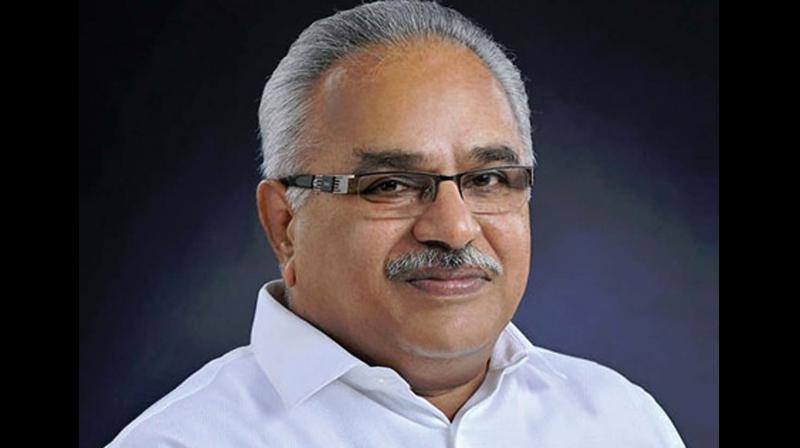Achutha Menon's life was an open book: Kanam

Thiruvananthapuram: Late Achutha Menon's personality was free of the vices witnessed in public life today, said CPI state secretary Kanam Rajendran while paying tributes on eve of his 26th death anniversary.
In a special article, the CPI leader said Achutha Menon’s life was an open book which had no place for lavish lifestyle, greed for money and hunger for power. It was transparent.
“The contribution made by the former chief minister to the state and its people were of sustainable in nature. His contributions will remain like a lamp which would not turn off before the future generations. This is the reason why Achutha Menon is a widely respected personality at the national level,” the CPI state secretary said.
The article is to mark Menon’s death anniversary which falls on August 16. In the second half of twentieth century Kerala had seen Achutha Menon as one of the most efficient, visionary , democratic and humanist leader of the highest order. He was known as creative practitioner of Marxism with revolutionary vision and someone who upheld high values in personal and public life.
Achutha Menon had acquired qualities which were rarely seen among political leaders and those in public life. Through his interest in cultural activities, literature, passion for studying and understanding various concepts and never dying hunger for knowledge, he could command the respect and recognition of cultural leaders, scientists and intellectuals.
It was in the second half of 1930 that he jumped into the rough and tumble of politics. Starting his public life as ordinary Congress worker, Achutha Menon was arrested in Thrissur in1940 for making a speech.
On his release from Viyyur Central Jail, he had already become a Communist. He admitted that Jawahar Lal Nehru’s thoughts had attracted him towards socialism.
As an administrator, Achutha Menon had set a goal of making Kerala highly developed state. The first budget presented by him in the first Communist government was with this direction and objective.
Subsequently he continued as chief minister for seven consecutive years from 1969. At that time his only aim was Kerala’s development. Hence there is nothing wrong in describing him as the architect of modern Kerala.
Former president K R Narayanan had recollected Menon’s contribution; ‘As chief minister he introduced several reforms which were decisive in changing economic backwardness of the state and it also helped in infusing renewed energy at the intellectual level.”

